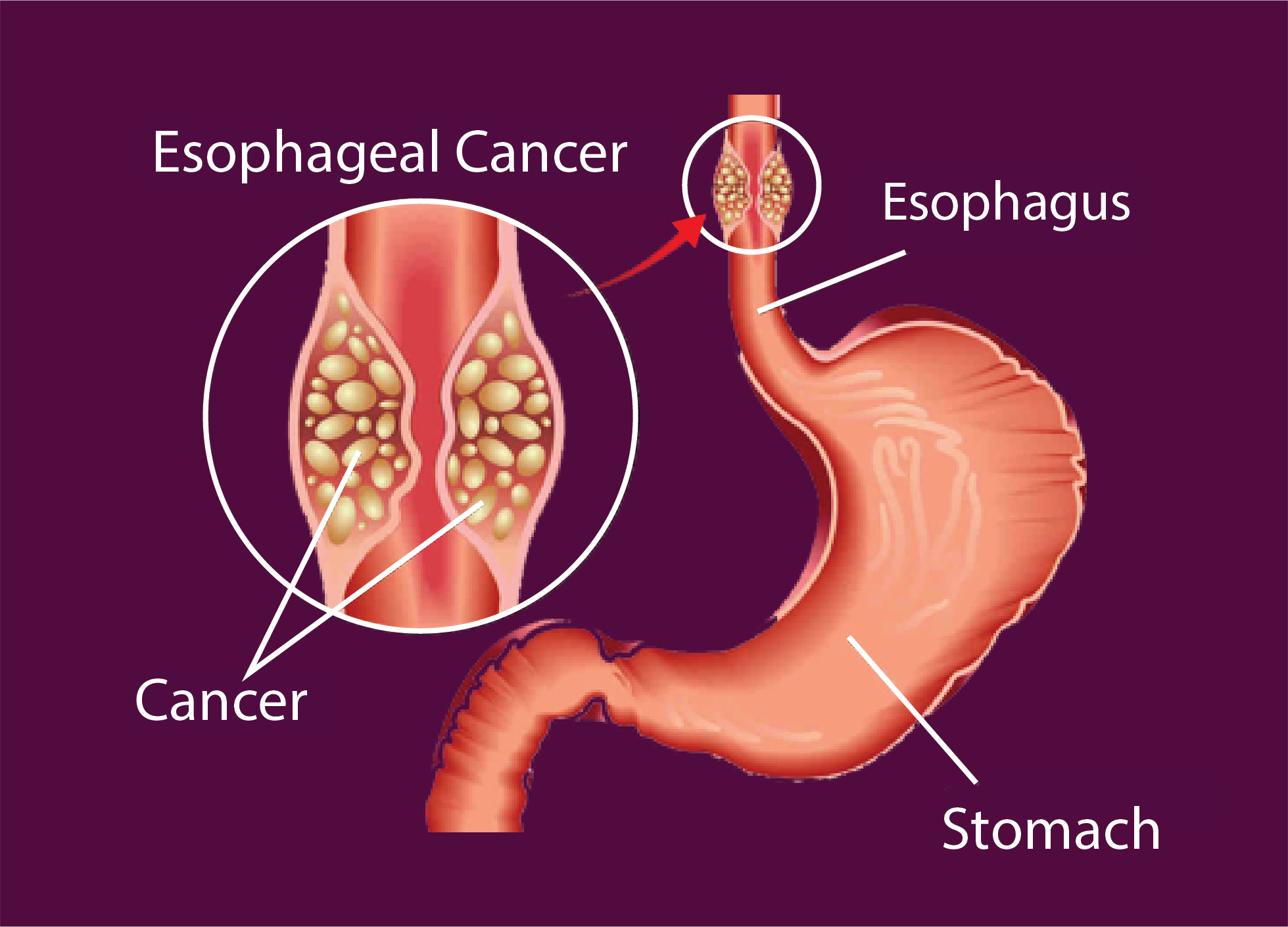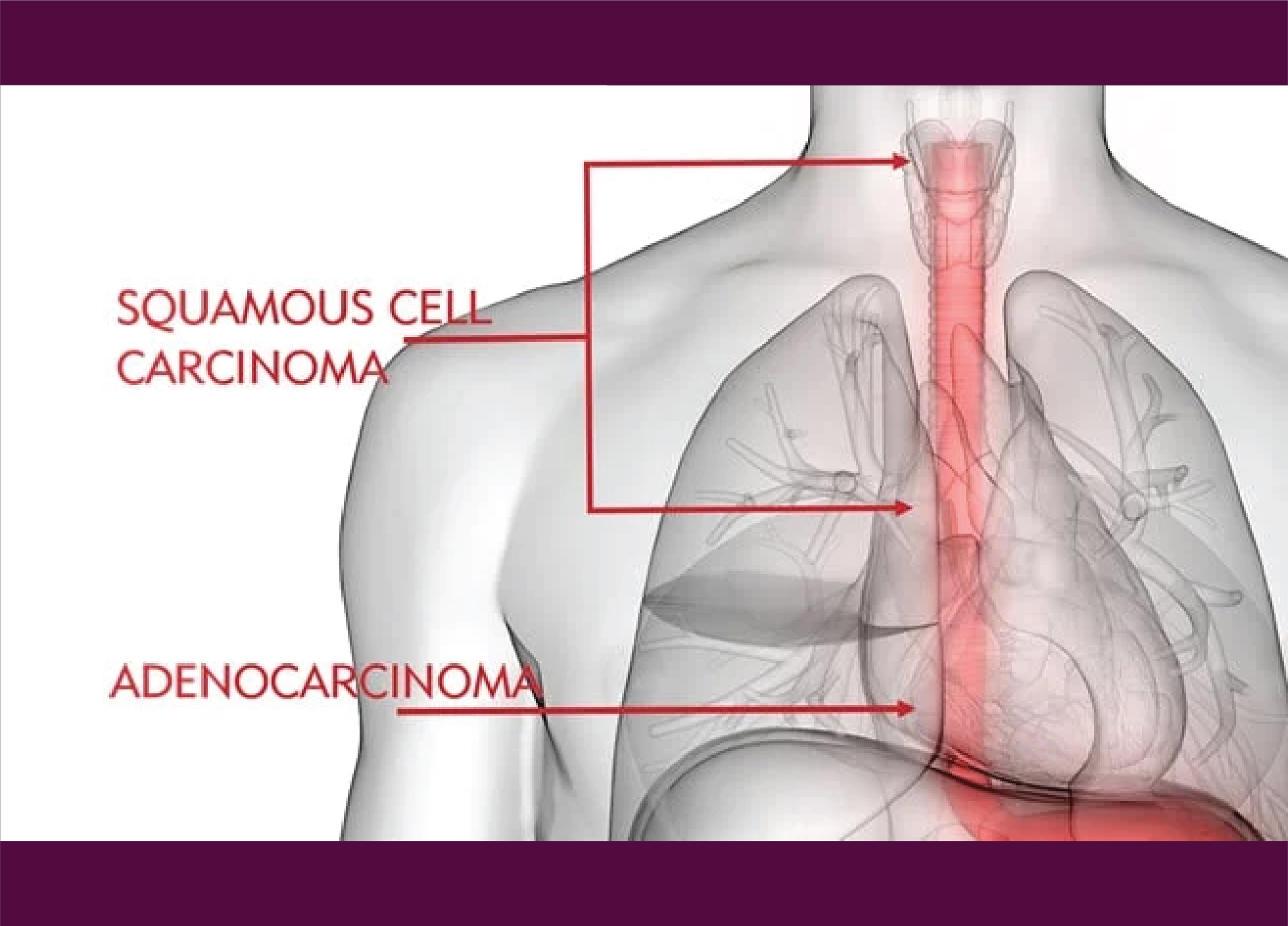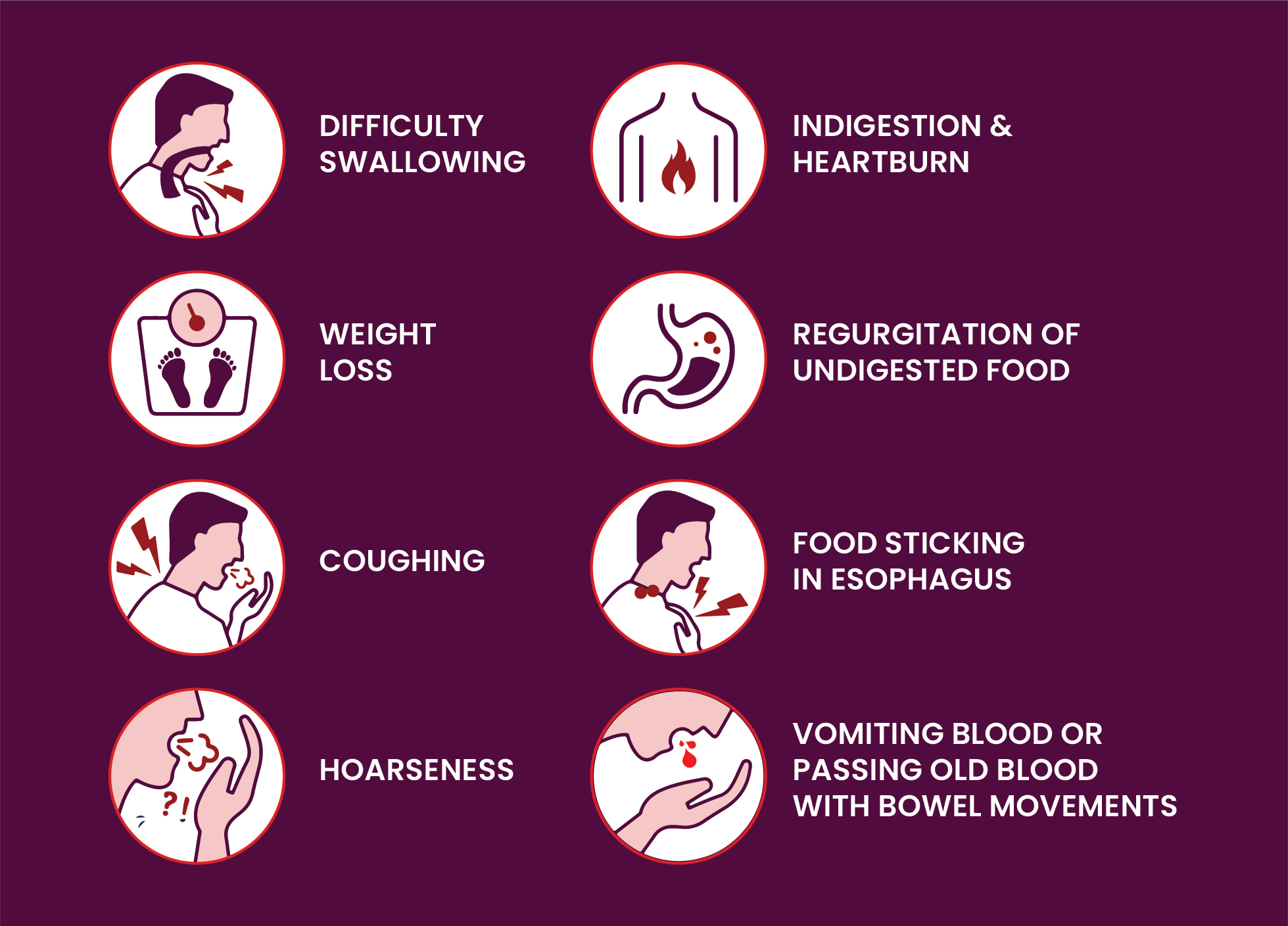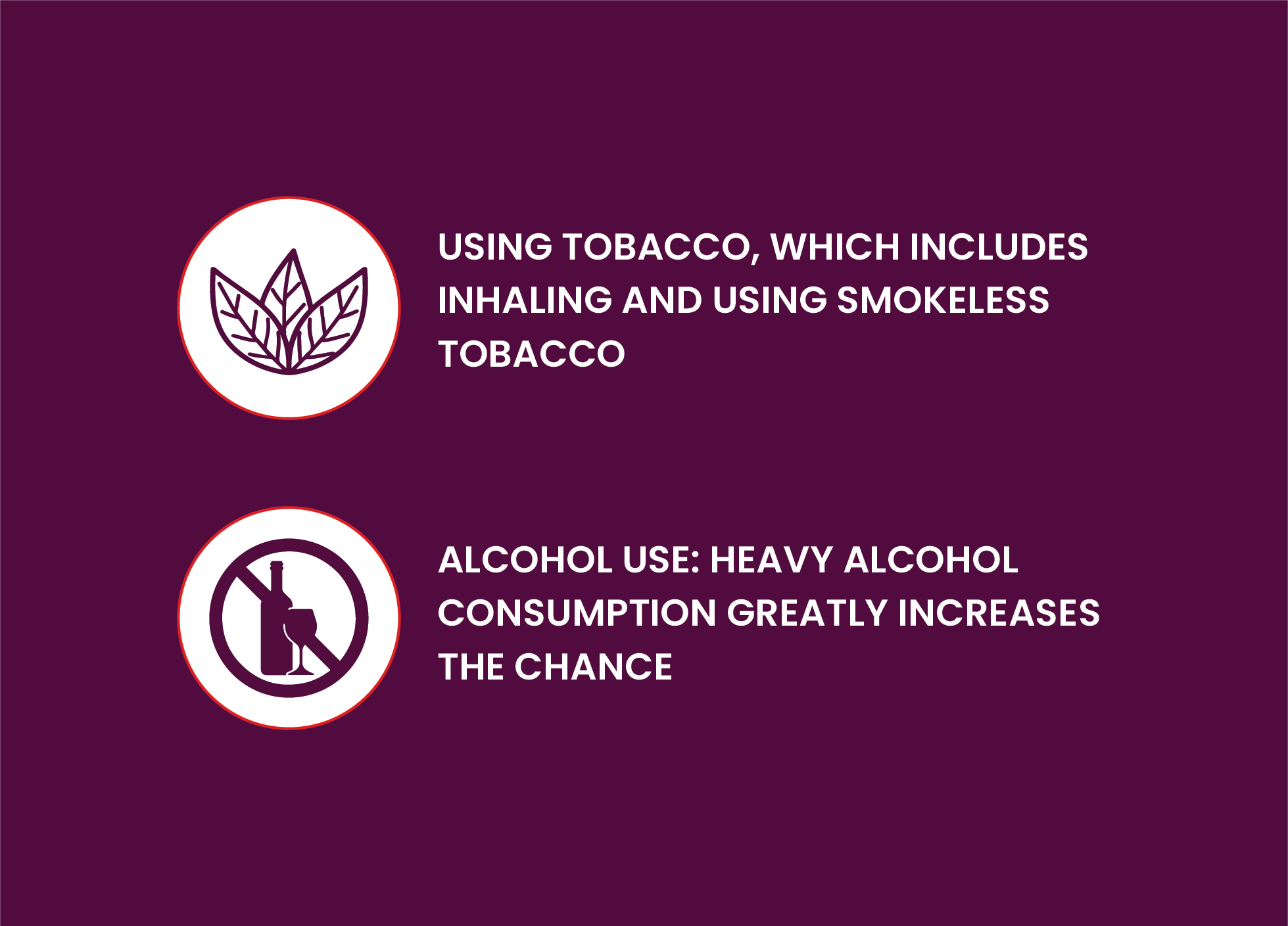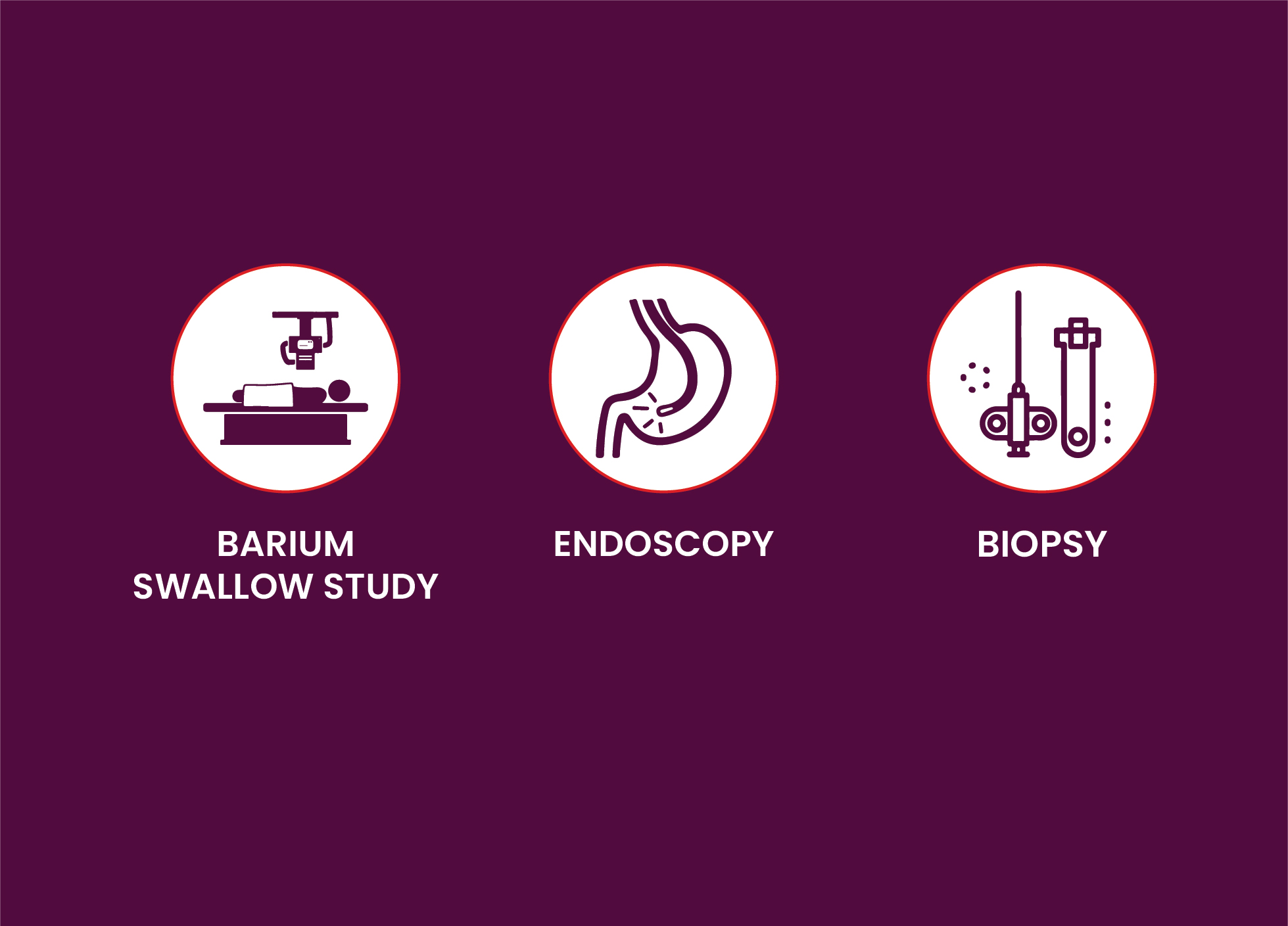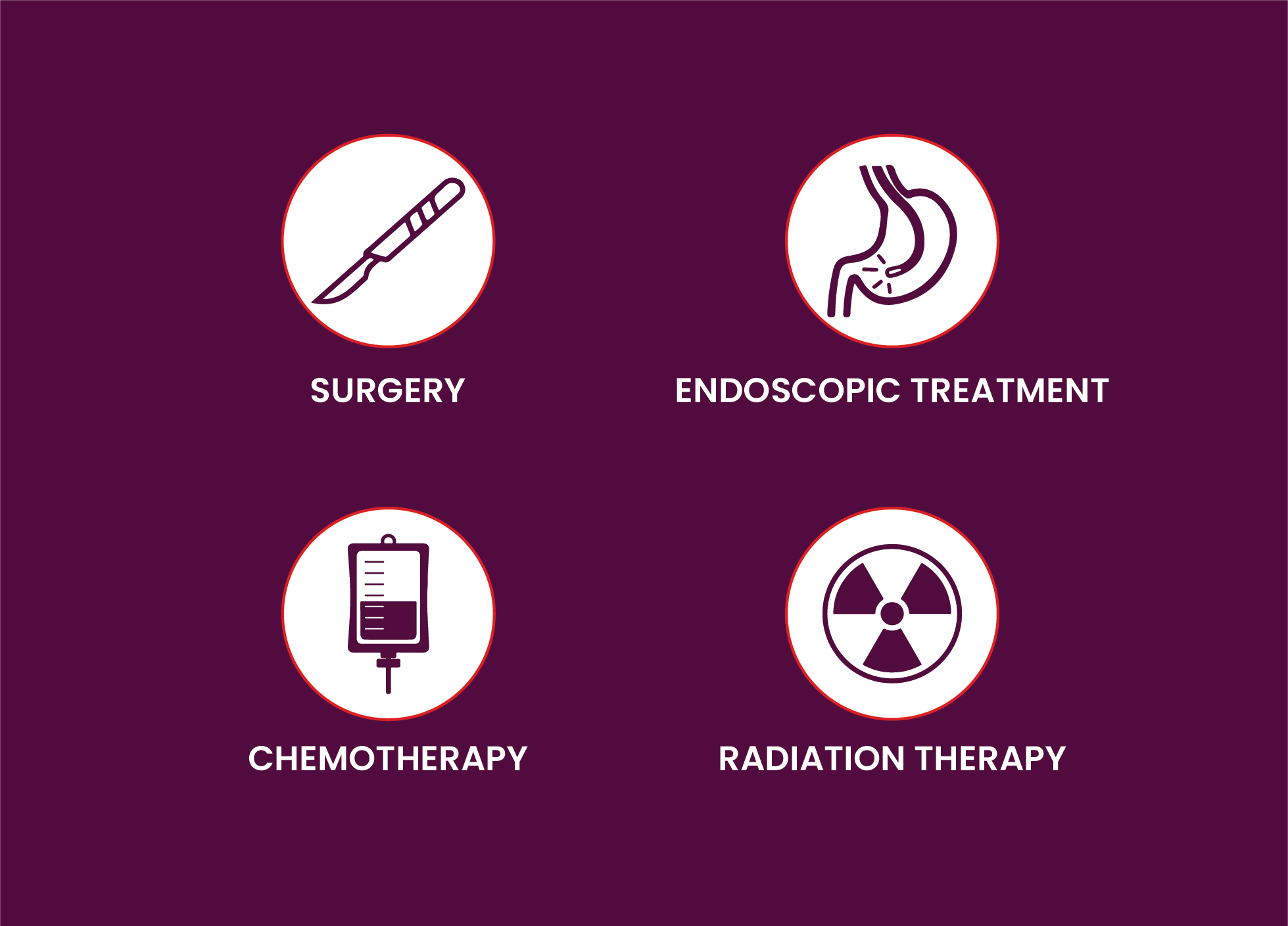Esophageal Cancer
The lining of the esophagus, a long, hollow tube that links the throat to the stomach, is where cancerous cells first start to grow and cause esophageal cancer. It helps the swallowed food to pass from the stomach to the back of the pharynx where it can be further broken down. The cancer usually first manifests itself in the inner layer of the esophagus, and it also frequently spreads (metastasizes) via the lymphatic system to other layers of the esophagus and other parts of the body. (Consisting of different types of vessels which specifically drain lymph from the tissues into the blood).
Esophageal cancer is more common in males than in women. It ranks as the sixth most frequent reason for cancer fatalities globally. The incidence rates of the illness vary depending on the geographic region. The rise in cases in some areas may be brought on by obesity, unhealthy eating practices, and use of tobacco and alcohol.
Early-stage esophageal cancer can be treated with surgery to remove the tumor or alleviate the symptoms, whereas advanced or later-stage esophageal cancer can be treated with chemotherapy, radiation therapy, and immunotherapy.
Esophageal carcinoma comes in two different varieties:
- Squamous Cell Cancer: A tumor that develops from the squamous cells that make up the skin's surface and the lining of hollow internal organs.
- Adenocarcinoma: Because the esophagus is lined with columnar cells, it is more likely for this malignant type of tumor to form there and at the intersection where the esophagus meets the stomach.
Signs and Symptoms:
Early esophageal cancer stages may not have any noticeable symptoms, but later stages manifest the following signs and symptoms:
- Difficulty or pain when swallowing
- Unintentional weight loss
- Coughing
- Hoarseness
- Indigestion and heartburn
- Regurgitation of undigested food
- Food Sticking in esophagus
- Vomiting blood or passing old blood with bowel movements
Causes:
Although the precise cause of this condition is unknown, the following things can increase your risk of getting esophageal cancer:
- Using tobacco, which includes inhaling and using smokeless tobacco.
- Alcohol Use: Heavy alcohol consumption greatly increases the chance.
Diagnosis:
The different esophageal cancer diagnostic procedures include:
- Barium Swallow Study: The patient is administered a liquid containing barium to swallow, after which an X-ray is taken. The barium in the liquid coats the esophagus to make any alterations to the tissue visible on an X-ray.
- Endoscopy: Your doctor will insert a flexible tube into your stomach through your mouth to look for any irritation or cancer.
- Biopsy: An endoscope is inserted down your throat and into your esophagus to gather a sample of questionable tissue for testing. The existence of cancer cells is then checked in the laboratory.
Treatment:
The patient's treatment choices are solely determined by the type of cancerous cells involved, the cancer's stage, and general health.
- Surgery: Surgery, either alone or in conjunction with other treatments, may be chosen for eradicating cancer cells:
- Removing very tiny tumors: An endoscope can be used to remove the cancer and surrounding healthy tissue if the tumor is within the operable range and limited to the superficial layer of the esophagus only. This will prevent the cancer from spreading.
- To remove a section of the esophagus (esophagectomy): During this procedure, the complete section of the esophagus that is cancerous, as well as the upper portion of the stomach and any nearby lymph nodes, are removed. The stomach and the residual esophagus are reconnected.
- To remove a portion of your esophagus and the upper portion of your stomach: A procedure known as an esophagogastrostomy is performed. This involves removing a portion of your esophagus along with a bigger portion of your stomach and nearby lymph nodes. Your esophagus and the leftover portion of your stomach are rejoined. You can connect the two by using a portion of your intestines.
- Chemotherapy: Chemotherapy is a medication that destroys cancer cells using chemicals. Patients with esophageal cancer might receive chemotherapeutic drugs either before (neoadjuvant) or after (adjuvant) surgery. Radiation therapy can be used in combination with chemotherapy. Chemotherapy can alone be used to relieve signs and symptoms brought on by advanced cancer that has spread past the esophagus.
- Radiation Therapy: High-energy beams like X-rays and protons are used in radiation therapy to kill cancer cells. Usually, a machine outside your body will release radiations while directing its rays at the cancer or it can be directly injected close to the cancer in your body (brachytherapy).
- Combined Chemotherapy and radiation: Usually in patients with esophageal cancer, the combination of radiation therapy and chemotherapy are given.
- Targeted Drugs Therapy: Targeted drug therapy focuses on particular characteristics in cancer cells. These drugs can stop the growth of cancer cells by disrupting these shortcomings. For advanced cancers or cancers that don’t react to other therapies, targeted therapies are preferred in combination with chemotherapy for esophageal cancer.
